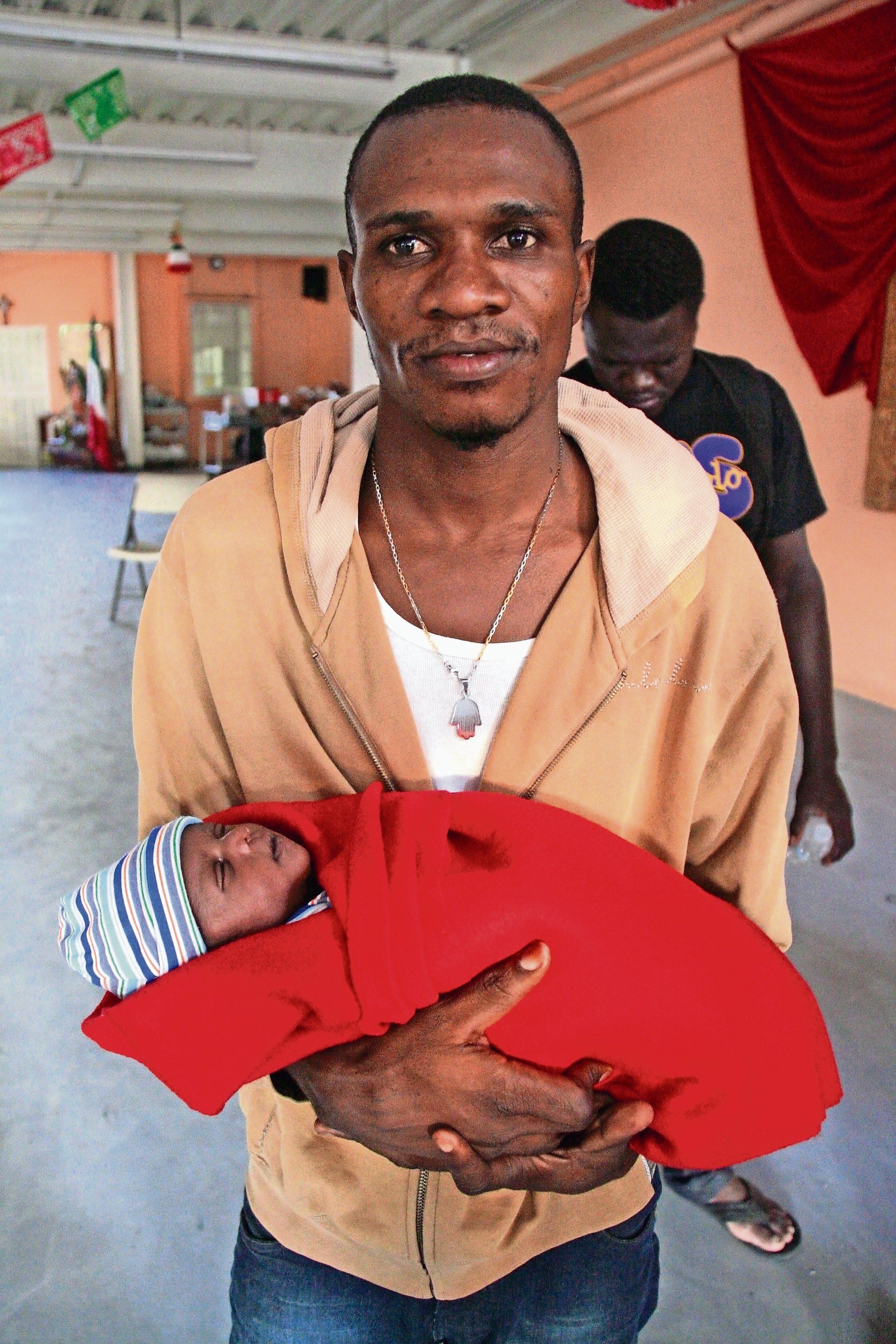The growing number of Haitian refugees in Mexico has unleashed a wave of discriminatory rhetoric not only on social media, but also in public in the border town of Tijuana, where thousands of Haitians are currently stranded, waiting and hoping to be granted asylum in the U.S.
Even though eight thousand caribbeans have arrived in shelters in Tijuana since March 23, it wasn't until this past September that associations and activists stepped in and declared a humanitarian crisis.
The crisis finally reached its boiling point last week after sightings of Haitians sleeping on Tijuana's streets caused an uproar not only among local business owners and citizens of the city, but also on social media.
On Facebook, a group called the Mexican Nationalist Front (Frente Nacionalista de México) is one of the most-like groups sharing and spreading this type of discriminatory language. “Tijuana shouldn't have to be the world's pit stop for people who don't share common interests with our country or our people looking to cross into the U.S.”
According to comments shared on their Facebook and on their website, the group wants all Haitians to be deported out of Mexico because of their “particular culture.”
Even worse were people's reactions to the group's original comments. “Go back to your country, Haitians, you're not welcomed here.” “Be careful or they'll attack you with their voodoo and santería,” are just some of the comments. However, on Wednesday, the group's page was eliminated as a result of backlash.
On their official website, the group issued a statement denying accusations that they've actively incited violence against the refugees or their murder.
“We believe it's unfair that Mexicans must pay for problems caused by the politics of another country,” they said in their statement.
Activists warned that the comments on social media are a reflection of the beginning of discriminatory practices, but luckily, these have been mostly isolated cases.
Sergio Tamai, who coordinates the Haitian refugee camp in Tijuana's norther region, insisted that over the last few days, in view of the growing number of refugees, many have had to sleep on the streets in Tijuana and Mexicali, which has caused some citizens to feel angry.
“They see them in a negative light… people are upset because they've had to use the streets as their bathroom since the government hasn't provided them with public sanitation,” said Tamai.
Tamai also said that local business owners near the camps are upset because they loiter around their businesses, which is driving away customers.
Many of the refugees have said that, more than anything, this wave of discrimination makes them feel sad because business owners yell insults at them.
Several clashes have been reported at the Padre Chava cafeteria for refugees, which was originally opened for Mexicans who had recently been deported from the U.S.
In one case, a Mexican woman who had been deported from the U.S. threw her plate of food at a young Haitian man, after feeling angry over the fact that Haitians, according to her, are receiving a disproportionate amount of the aid and donations pouring into the area.
Sergio Tamai feels that right now this problem is mostly people sharing their anger or hateful opinions on social media, but he fears that this problem could soon escalate into the real world.

Harold Cidoine, a Haitian refugee, holds his daughter, who was born three weeks ago in the Mexican city of Tapachula, near the border with Guatemala. Although his wife and newborn sleep inside a shelter, he's had to sleep on the streets due to limited space.
“I have no idea why the yell those ugly things at us. Look at my daughter! She's a Mexican citizen… just like you,” he said enthusiastically, despite feeling disappointed with how locals are treating them. His daughter’s birth was already registered with Tapachula's Civil Registry Office and he and his wife are waiting for their appointment with U.S. Immigration and Customs Enforcement in the hopes of reuniting with family in Miami.


/cloudfront-us-east-1.images.arcpublishing.com/eluniversal/5PMRZ6VOBJGKTAY4LLETYJRXMM.jpg)
/cloudfront-us-east-1.images.arcpublishing.com/eluniversal/JHPIAAJNKZAGZP5FZHTF7BTE74.jpg)



